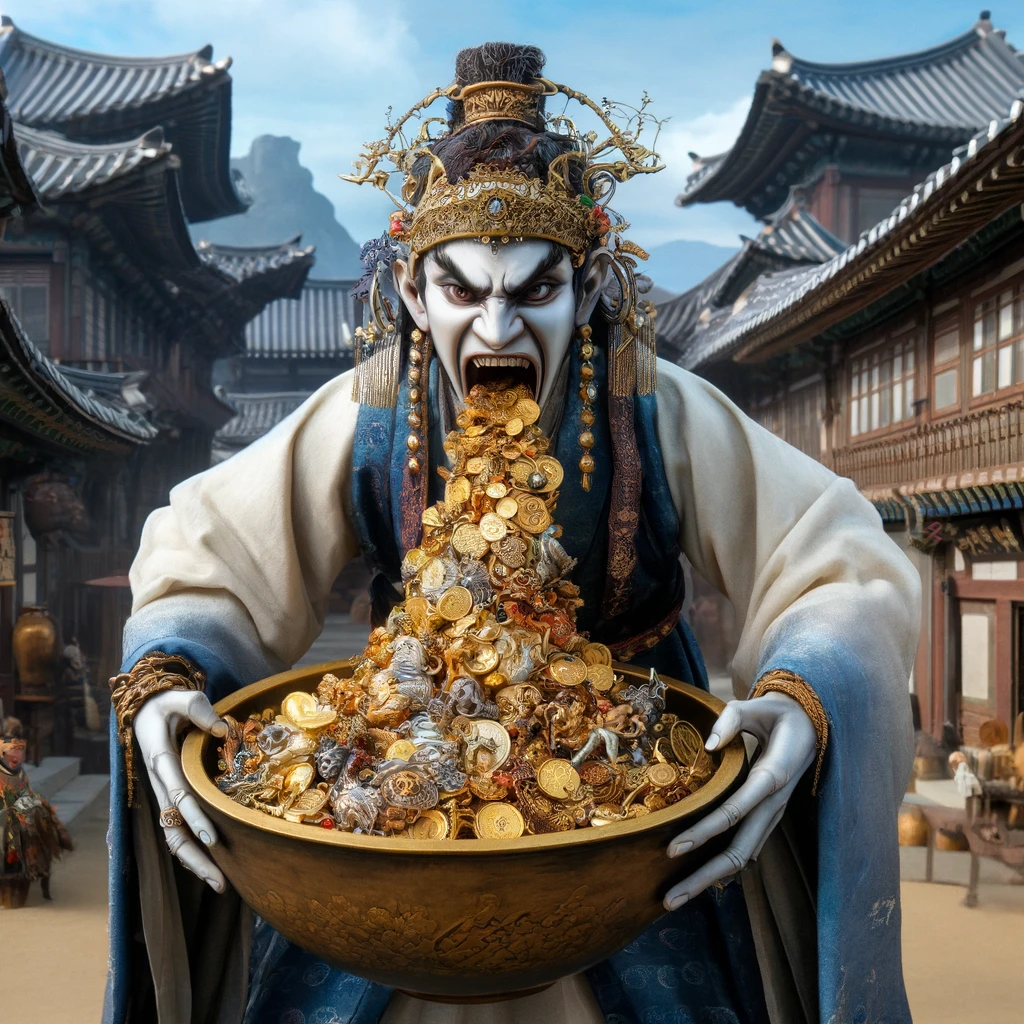In the tapestry of Korean folklore and history, few characters are as colorful and intriguing as Yeongno, famously known as the “rich eater.” This mythical figure has been a part of Korean culture for centuries, symbolizing themes of wealth, justice, and the redistribution of resources in a uniquely humorous and fantastical manner.
Who Was Yeongno?
Yeongno, which translates to “rich eater” in Korean, is a folkloric character who is said to possess an insatiable appetite, not for food, but for consuming the wealth of the greedy rich. According to legend, Yeongno would target corrupt nobles and wealthy misers, consuming their riches and then redistributing them among the poor and needy. This Robin Hood-like figure is celebrated as a hero in Korean folklore, representing the virtues of fairness and retribution against societal inequalities.
Legends and Stories
One of the most popular tales recounts how Yeongno visited a notoriously greedy landlord. The landlord hoarded vast amounts of wealth, much of it gained through the exploitation of his tenants. Yeongno, upon learning of this, disguised himself as a beggar and visited the landlord. Once inside, he revealed his true form and proceeded to ‘eat’ the landlord’s hoarded gold and silver, later regurgitating it to distribute among the suffering tenants.
Cultural Significance
Yeongno’s actions are often interpreted as symbolic, illustrating deep social and economic criticisms. His stories underscore the dissatisfaction and anger of common people towards the corrupt elite of the historical Joseon Dynasty. Yeongno serves as a moral compass, reminding the rich of their social responsibilities and the consequences of their greed.
Yeongno in Modern Culture
Today, Yeongno remains a popular figure in Korean media and literature, often portrayed in novels, films, and television series that highlight themes of justice and equity. His character has been adapted to reflect contemporary issues, resonating with audiences facing modern-day economic disparities.

Yeongno, the rich eater, stands as a timeless figure in Korean folklore, embodying the perpetual struggle against inequality and injustice. Through his stories, Yeongno continues to inspire and entertain, reminding us of the power of folklore in shaping societal values and highlighting the universal desire for fairness and justice.
